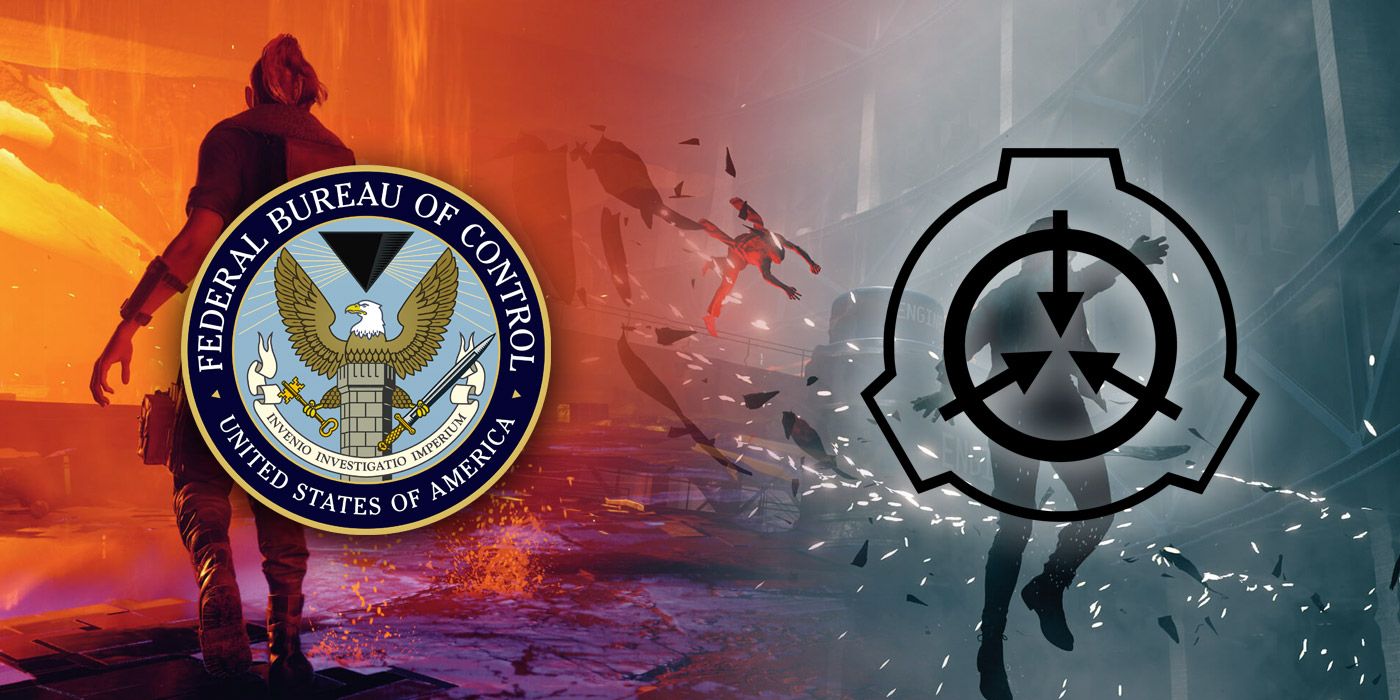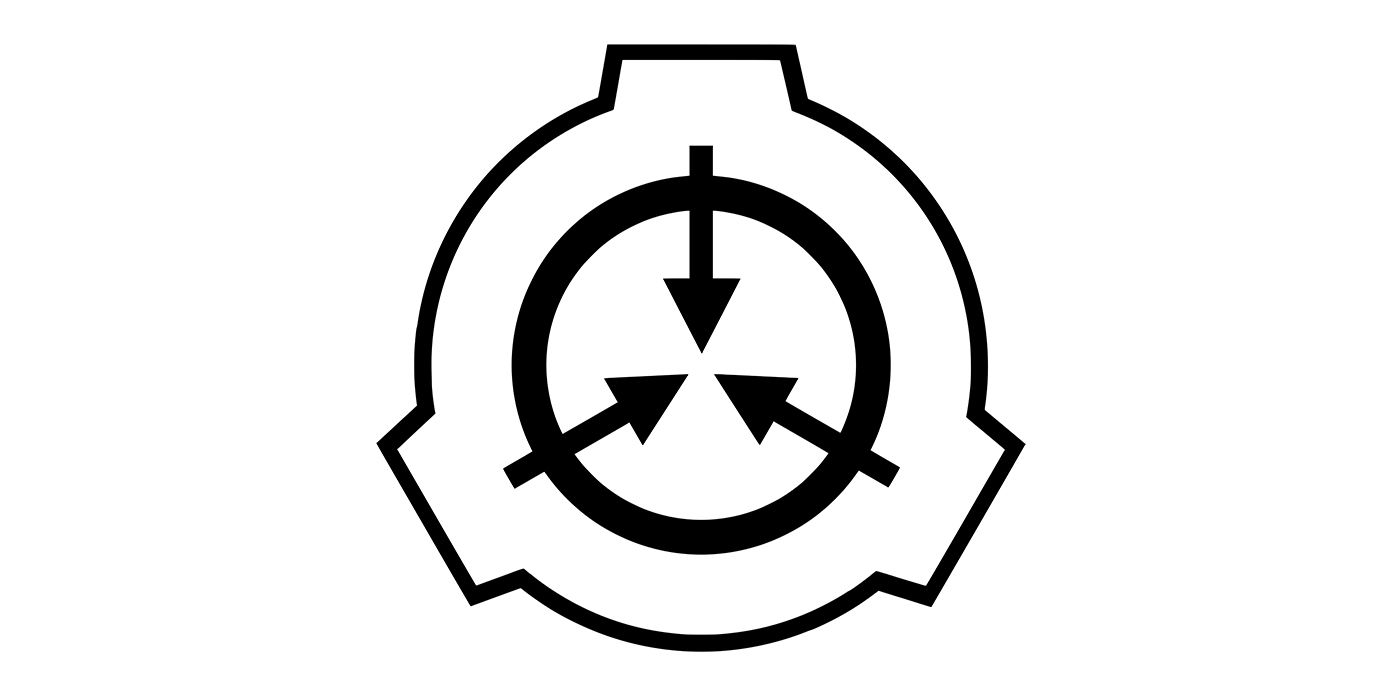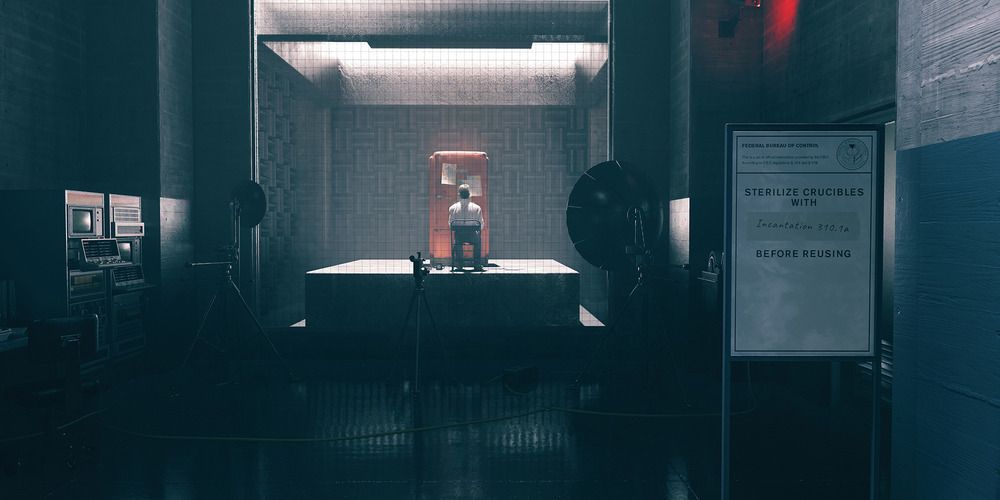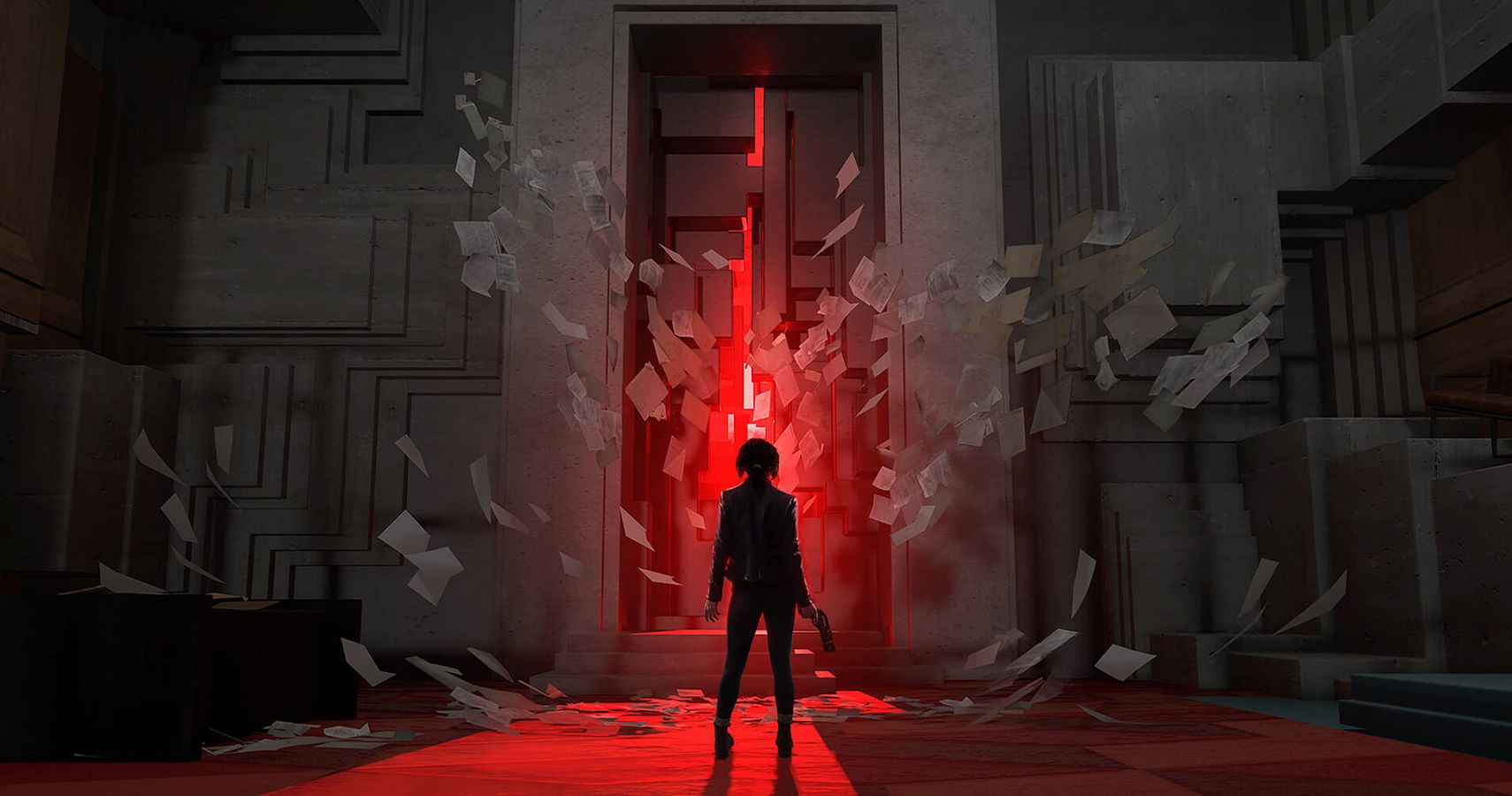Internet myths and stories, like creepypastas and fan fictions, are plentiful across various different wikis and other databases. One particular mythos that's uniquely tied to internet culture and its community is the SCP Foundation, a collaborative web-fiction project dedicated to the paranormal. Stories from the SCP universe range from a disturbing sculpture hellbent on killing humans ("SCP-173"), to an infinite IKEA store that has no corporeal restrictions within the building itself ("SCP-3008"). Fiction based in the SCP world ranges from deranged horror to societal satire, and served as one of the primary inspirations behind Remedy Entertainment's Control.
Both the SCP Foundation and Control toy with the concept of the supernatural attaching and inserting itself into objects found in real, everyday life. The two share a lot of thematic and conceptual similarities, from physical objects from society taking on supernatural capabilities, to unexplainable incidents in life that are covered up. While Control is a centralized narrative compared to the massive SCP universe, there are several short stories contained within the SCP universe as well. Both toy with elements of horror mixed in with elements of satire or ridiculousness that never takes itself too seriously, but is simultaneously compelling and engrossing.
The Origins and Themes of the SCP Foundation Web-Fiction
Of course, for a linear singleplayer experience, it's impossible to encompass the same scope that the SCP Foundation boasts after 13 years on the internet. However, much of Control's world and lore is based on the many SCP Foundation articles and stories that have accumulated a cult following on the internet. The SCP Foundation website and community was initially founded in 2008 after one of the first SCP articles went viral from 4chan. SCP Foundation launched its own wiki after the "SCP-173" creepypasta spawned a number of additional short stories set in that same universe. Today, the SCP Foundation wiki boasts over 6,000 different short stories.
SCP Foundation's ever-expanding myths continue to grow to this day, because the premise of the SCP universe is wholly unique for creative writing. The S.C.P. acronym applies in multiple volumes, but primarily stands for "Secure, Contain, Protect." This fictional organization is a clandestine group that operates independently, seeking to enforce "special containment procedures" on any entities in the world that violate known laws of nature. This could be in reference to any object, place, or unidentifiable figure/entity that is capable of unnatural abilities. The Foundation collects and stores all known "SCPs" securely to research them and protect humanity.
Control Wears its SCP Inspirations On its Sleeve
For anyone who's played Control, a lot of these themes are going to sound very familiar. Much of the conceptual ideas behind the Federal Bureau of Control, Objects of Power, and Altered World Events are based on SCP Foundation concepts and stories. While SCP lore never really makes it clear what or who founded the organization, Control's version frames it as an extension of the United States government; Federal Bureau of Control. Objects of Power are essentially objects that confer unto users unpredictable, unworldly abilities. Altered World Events (AWEs) denominate events in which supernatural disturbances occur.
However, these similar concepts and ideas act in service to Control's world-building, framing the peculiar situation that players find themselves in. Jesse Faden, Control's protagonist, finds herself investigating the FBC in search of her younger brother Dylan. Dylan disappeared after him and Jesse found themselves at the center of an AWE, and he was later kidnapped by the FBC as Jesse fled. Jesse soon finds out she is guided to the FBC by a supernatural being called Polaris, who joined with her after the AWE, because she is selected to become the FBC's new director. Frankly, summarizing the plot doesn't do Control's actual story justice, as it's strangely compelling.
Control is Arguably the Best Introduction to the SCP Mythology
In the way that the SCP Foundation has built up a world of lore over years of contributions, the FBC in Control frames a linear story around that internet mythology. Obviously Objects of Power, AWEs, and the Federal Bureau of Control are clear nods to SCP and the many sub-stories within that universe. Jesse Faden's journey through the Federal Bureau of Control almost acts a sort-of museum or vertical slice to what the SCP Foundation's mythology is all about. If anything, Control makes SCP lore palatable in a way not many other stories have been able to do previously. Jesse's journey throughout Control is the closest representation in media to actual SCP lore.
This is without even praising Control's gameplay, which is an interesting blend between third-person shooter and superhero-style action games. Players utilize the "Service Weapon" Object of Power to blast away at the villainous "Hiss" entity that plagues the FBC's Old House and its workers, all while gaining superpowers in the process. Control really is an incredible game that initially put off many potential players because they didn't understand what the game actually was. Control wears its SCP Foundation inspirations on its sleeve, but in a way, it also represents the best way to get into SCP Foundation's world in a way most other methods haven't done before.
Control is available now on PC, PS4, Xbox One, and Nintendo Switch. The PS5 and Xbox Series X/S versions release on February 2, 2021.







